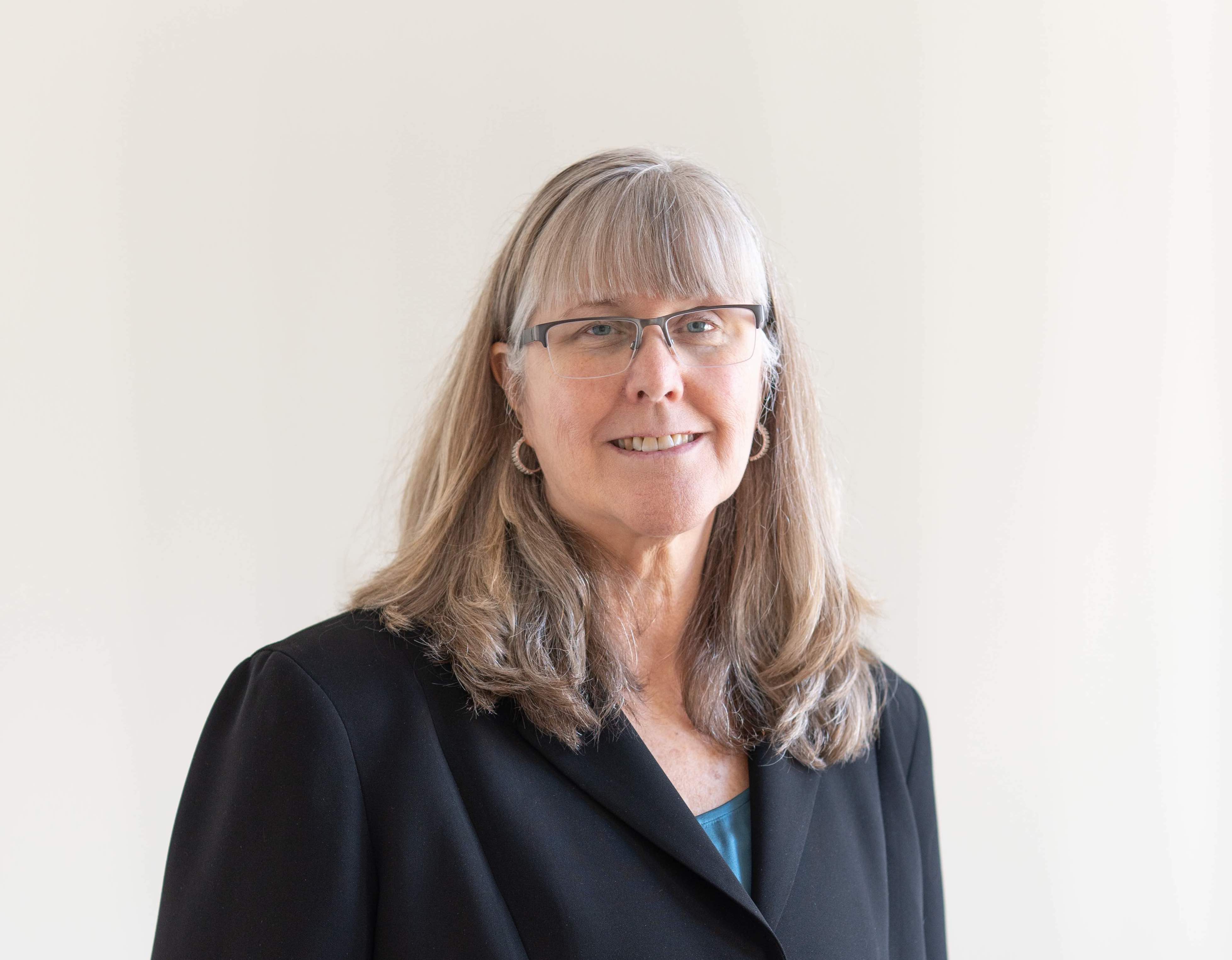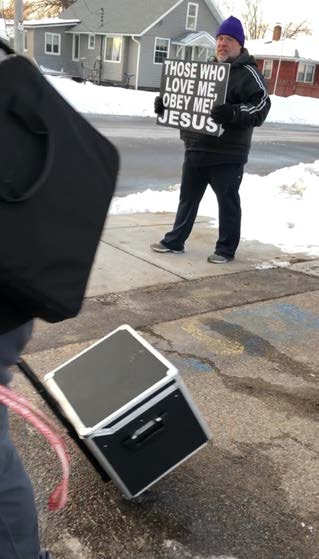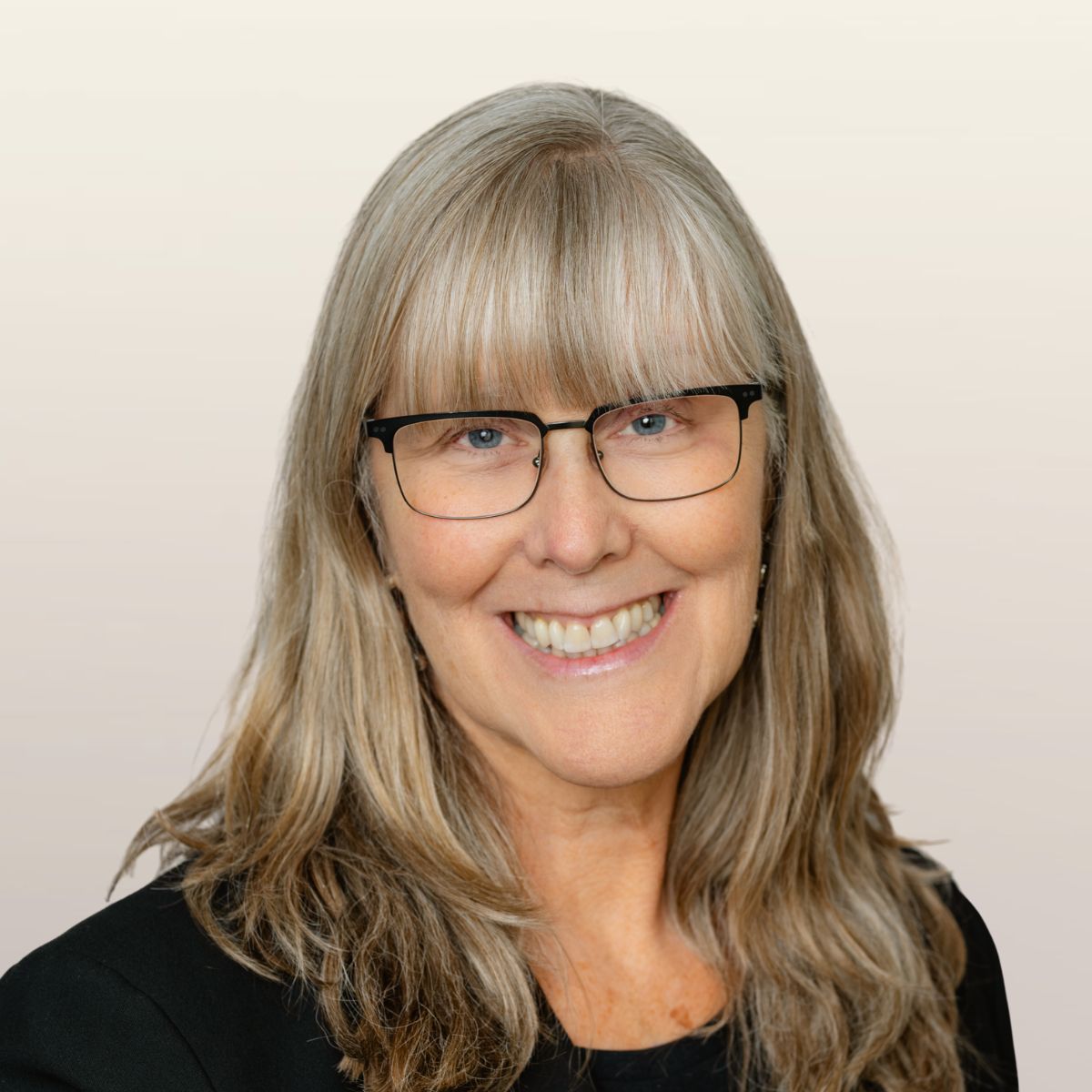Conversation: The Right to Be Heard
An interview with TMS Executive Vice President & Managing Counsel Joan Mannix on Kindschy v. Aish, a victory for free speech in Wisconsin

This interview originally appeared in the Thomas More Society 2024 Impact Report. To explore the full Impact Report, click here.
What happens when a citizen’s right to speak on a public sidewalk is silenced? For Brian Aish, a pro-life advocate from Blair, Wisconsin, this question became reality—until a unanimous Wisconsin Supreme Court victory on June 27, 2024, overturned a previous court order that had barred his advocacy outside a Planned Parenthood business. Represented by Thomas More Society, Brian’s case, Kindschy v. Aish, not only restored his First Amendment rights but also set a strong precedent for free speech in public forums in Wisconsin.
Since 2014, Brian Aish had been a dedicated sidewalk counselor outside his local Planned Parenthood. A devout Christian, Brian spoke to abortion-minded women, offering alternatives to abortion, and stayed after-hours to evangelize to facility workers, including Nancy Kindschy. His messages to her, urging her to leave her job and warning of moral consequences (e.g., encouraging her to repent before it was too late), were intended to persuade—not threaten. Despite video evidence showing Brian’s gentle manner in voicing his message on the sidewalk, Kindschy claimed his speech was “intimidating” and “threatening,” and in 2020 sought a court order to stop Brian from speaking.
The court-ordered injunction prohibited him from being near the Planned Parenthood when she was present, effectively halting all of his advocacy. Brian, backed by TMS attorneys, appealed, arguing that his speech was protected under the First Amendment as it occurred in a public forum—a sidewalk, a space long recognized as open for free expression. Lower courts upheld the injunction, despite finding no “true threats,” which are statements intended to intimidate and are not protected under the First Amendment. TMS escalated the case to the Wisconsin Supreme Court, with EVP and Managing Counsel Joan Mannix arguing twice before the Court—first in 2022 and again in 2024, leveraging the U.S. Supreme Court’s recently-set precedent in Counterman v. Colorado (2023) which underscored the importance of understanding a speaker’s mental state before determining whether speech is threatening or not.
Kindschy v. Aish is more than a win for Brian Aish—it’s a victory for free speech everywhere. By protecting Brian’s right to speak, the Wisconsin Supreme Court upheld the principle that good ideas are revealed through dialogue, not suppression. For TMS, this case is another step in an ongoing mission to defend free speech, ensuring pro-life advocates can continue their ministry without fear of unconstitutional restrictions.
TMS sat down with Joan Mannix, Thomas More Society Executive Vice President & Managing Counsel, who shared insights into the case and broader impact of the decision.
TMS: What is the difference between First Amendment-protected speech, like that of our client Brian Aish’s, and non-First Amendment-protected speech?
Joan Mannix: There are some kinds of speech that the Supreme Court has ruled is of little societal value, including what they call a ‘true threat’. For example, “I’m going to kill you, I’m going to burn your house down.” That kind of speech has so little value, it’s not protected by the First Amendment. There’s a few different kinds of speech that fall in that category, like fighting words. The place also matters. I can’t walk into your house and tell you what I think. That’s not protected if I’m not invited into your home. But speech in a public forum, like a public sidewalk, is really the ‘Wild West’ of free speech. In a public forum, the idea is that anybody who’s got a viewpoint can voice that viewpoint. And the whole idea with the First Amendment is, if you open up the cauldron of ideas and everybody can have an opportunity to express their ideas, the best ideas bubble to the top, so to speak.
TMS: What is the significance of this case beyond restoring Aish’s First Amendment right to sidewalk counsel and share the pro-life message?

JM: Aish is a trailblazing case because it was one of the first cases to apply precedent from the Supreme Court’s 2023 decision in Counterman v. Colorado. Counterman examined the question of where exactly the line falls between protected First Amendment speech and speech that is not protected. We look at the mens rea, or mental state or intention of a person, to determine the nature of the speech. In Aish’s case, the intention behind his speech was clear—he’s actually a very kind and religious man, motivated by genuine Christian concern for women contemplating abortion and the abortion facility workers. He spoke to them in that spirit.
TMS: Some, despite being sympathetic to Aish’s pro-life views, might criticize his speech about heaven, hell, and the need for repentance—especially directed towards Nancy Kindschy as he encourages her to stop working at the abortion facility.
JM: There’s a lot of debate among pro-life advocates about what’s the best way to express a message that will be received, heard, and embraced by the hearer. But your First Amendment rights don’t depend on whether you have a willing listener. If they did, you’d only speak to people who thought the same thing you do. There’d be almost no reason to have free speech and an opportunity to try to persuade people to your way of viewing things. For example, if you’re an anti-nuclear power activist, and you want to stand outside on the public right-of-way outside of a nuclear power facility and say to people, “Don’t go in there! This place is going to make everybody have five eyes and four noses,” you are entitled to present your message in a way in which you think it will be accessible or heard by your listener.
TMS: What was your reaction when you heard that the Court had ruled unanimously in favor of Aish?
JM: I couldn’t believe we won, because the composition of the Court changed between the first and second oral arguments. My reaction to the case was that it was a very important win in support of First Amendment rights, generally, and pro-life speech, specifically. It reinforced that the First Amendment protects all speech, whether or not popular, and that speakers in a public forum who are trying to get people to hear their message can phrase it in a way they believe will get people’s attention and hopefully hear the speaker’s message. Also, since it was a state supreme court, rather than a federal court, I thought it was important in that it reminds the state courts that they too need to protect speech in the public square.





